IOS and Genuine Publications jointly organises function to mark release of the biography “Dr Mohammad Manzoor Alam: Empowering the Marginalised”
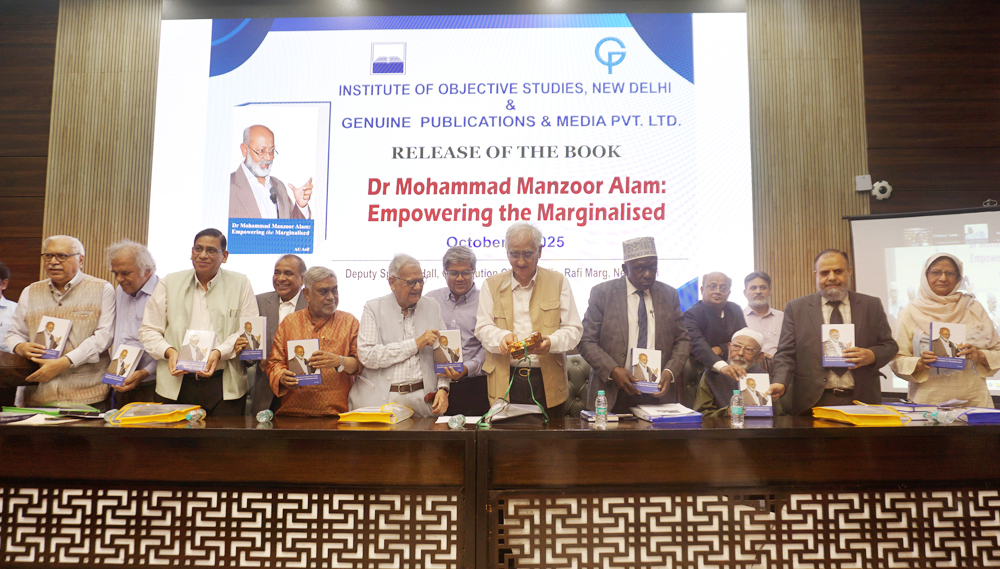
IOS and Genuine Publications jointly organises function to mark release of the biography “Dr Mohammad Manzoor Alam: Empowering the Marginalised”
New Delhi: A biography of the founder-chairman and currently Chief Patron of the Institute of Objective Studies (IOS), Dr. Mohammad Manzoor Alam, was released at an impressive function jointly organised by the IOS and Genuine Publications & Media Pvt. Ltd., at the Deputy Speakers Hall, Constitution Club of India on October 8, 2025. The biography Dr Mohammad Manzoor Alam: Empowering the Marginalised, compiled by the Delhi-based senior journalist, Mr. A. U. Asif, profiles Dr. Alam’s life and his contribution to social uplift of weaker sections by way of research and action.
.jpg)
The function began with the recitation of a Qur’anic verse by Dr. Nakhat Husain Nadwi, in-charge of the Arabic Section of the Institute. The recitation was accompanied by the translation in English.
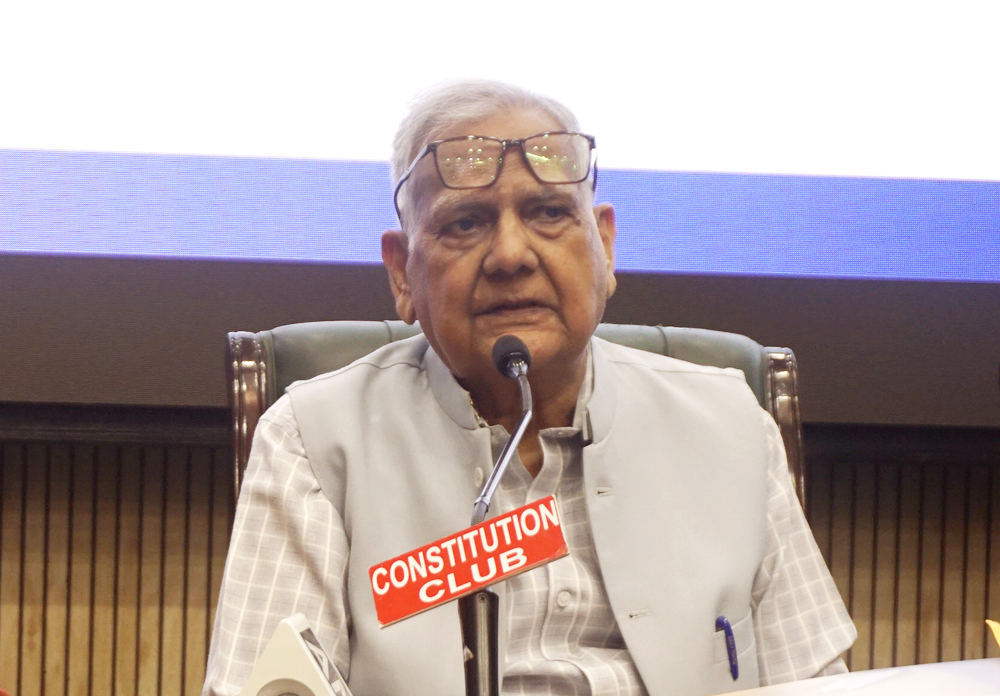
In his welcome address, Patron of the IOS, Prof. Z.M. Khan, appreciated Mr. A.U. Asif for his efforts to compile the biography. He said that his association with Dr. Alam dated back to a long time. It was a cognitive baseline on which he worked. He worked on the Tawhidic paradigm. Instead of understanding Islam cursorily, he looked at it in a different perspective and that perspective was very correct. He expressed the confidence that the biography would inspire the coming generations. He suggested that Dr. Alam’s ideas and the efforts should be looked into the Islamic perspective. He said, “He is not feeling well, yet he came to attend the function. He is not fit to speak”. He wished Dr. Alam good health and longevity.
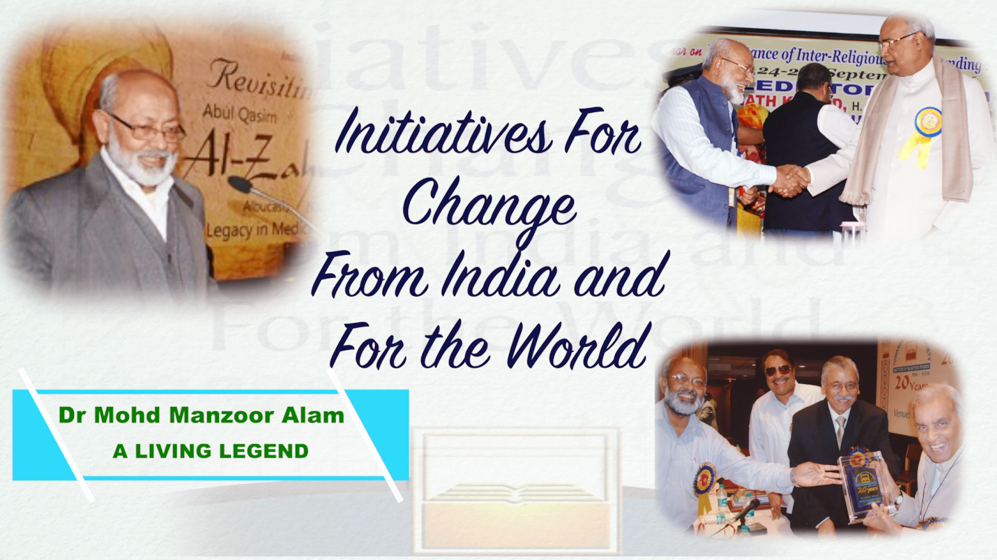
The occasion was marked by the screening of a 15-minute documentary on the life Dr. Alam, titled ‘Dr. Mohammad Manzoor Alam: A Living Legend’.
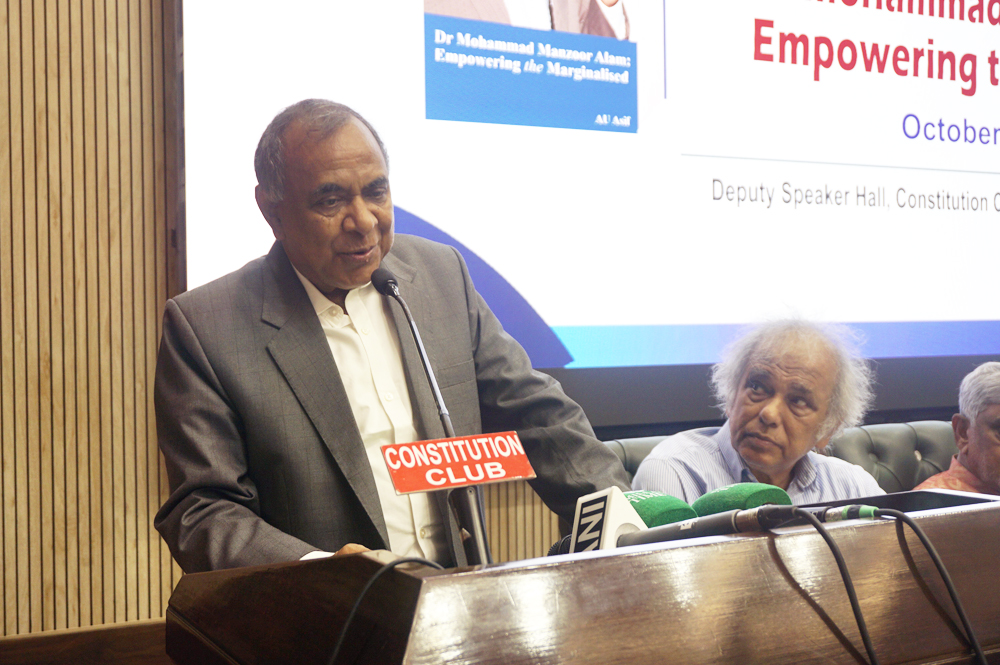
Introducing the biography, Mr. A.U. Asif said that Prof. Amitabh Kundu was the most important man who did the work on empowerment of the marginalised communities in India. Prof. Kundu made a big contribution to the subject as Chairman of the Kundu Committee of which Dr. Alam was also one of the members. He narrated an anecdote of Dr. Alam’s young age which involved a Paswan boy of his native village. He argued with his father for the equal rights to the village lad. While wishing Dr. Alam to complete the century of his life span, he held that at Aligarh Muslim University, he received the affection and guidance of Dr. F.R. Faridi and the well-known scholar of Islamic economics, Dr. Mohammad Nejatullah Siddiqui. Inspired by both of them, he founded the Institute of Objective Studies. Academically, socially and ideologically, he made his country a pride. He maintained that after doing his Ph.D. in economics, Dr. Alam went to the Kingdom of Saudi Arabia in 1980s where he took up a lucrative job, but returned to India after some time and established the Institute of Objective Studies in 1986. After reading Jasoosi novels, he turned to the study of the Qur’an which gave him a new vision to focus on objective study of subjects and issues confronting socially and economically deprived societies, he added.
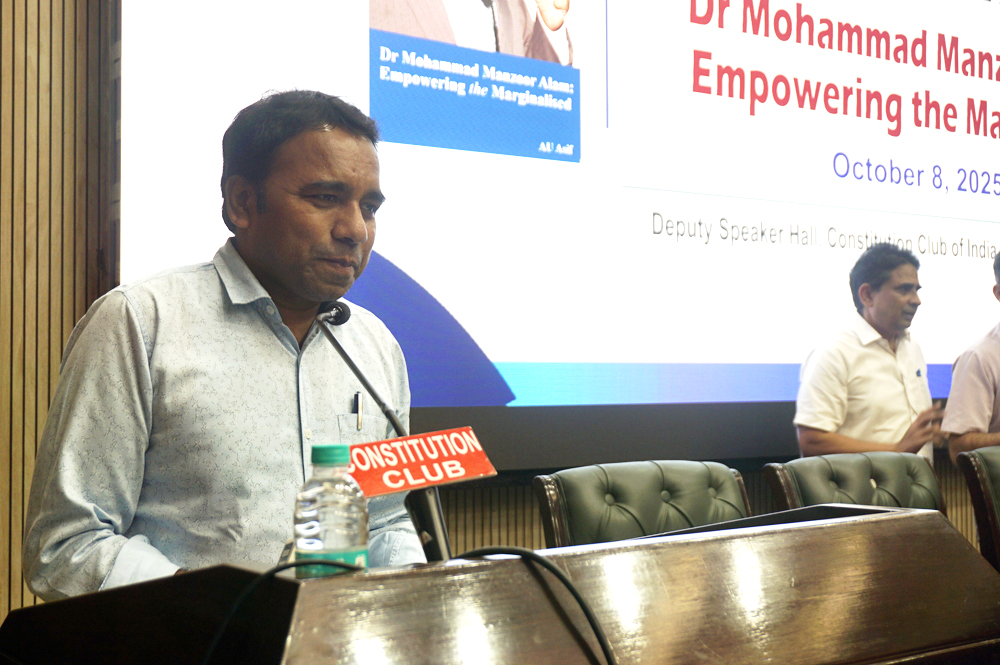
Prime Minister of Malaysia, Datuk Seri Dr. Anwar Ibrahim, in a message, read out by the associate professor of political science, Zakir Hussain College, Delhi University, Dr. Aftab Alam, described Dr. Mohammad Manzoor Alam, “as a movement that will live forever”. Recalling his friendship with Dr. Alam spanning over four decades, Datuk Ibrahim called Dr. Alam a “visionary leader who dedicated his life to empowering the marginalised and upholding the values of knowledge and justice”. He said that he found in Dr. Alam— a sincere friend and farsighted guide. He hoped the biography would continue to inspire coming generations.
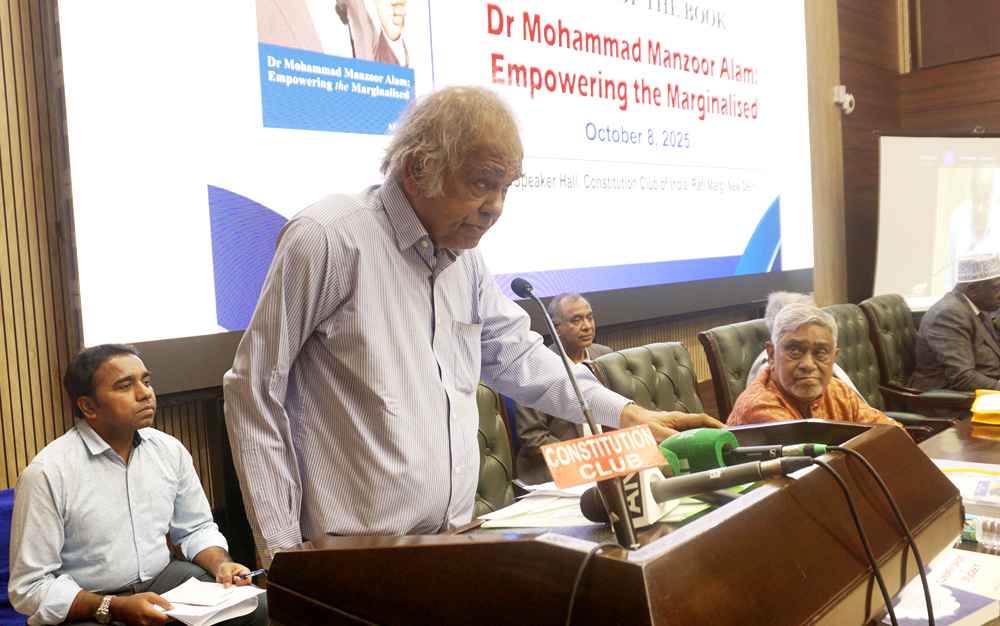
Prof. Amitabh Kundu, professor emeritus, L.J. University, Ahmedabad, observed that Dr. Mohammad Manzoor Alam had been source of inspiration to him. He used to discuss socio-economic issues and educational status of Muslims with him. He maintained regular contact with him during his chairmanship of the Post-Sachar Evaluation Committee, popularly known as the “Kundu Committee”. He said that Dr. Alam used to talk to him about Indian democracy and culture which was being destroyed. He also discussed with him about the situation of the world, particularly the Palestinian issue. Dr. Alam had always been concerned not only about one community, but also the entire nation. Sharing his experience during the Sachar Committee years, he noted that Dr. Alam had an inclusive vision. He had a different perspective about the nation. He was an ardent believer in India’s composite culture. Lauding Mr. Asif’s efforts, he said that he did a tremendous job by touching on every aspect of life and contribution of Dr. Alam. Pleading for the reservation for Muslims, he observed that they were deprived of the benefits as OBC. Both Dr. Alam and Dr. Amir Ullah Khan, were closely associated with the Committee he chaired. He said that education among Muslims was very low. The Kundu Committee report was still under the consideration of the government. He wished Dr. Alam many more years of life.
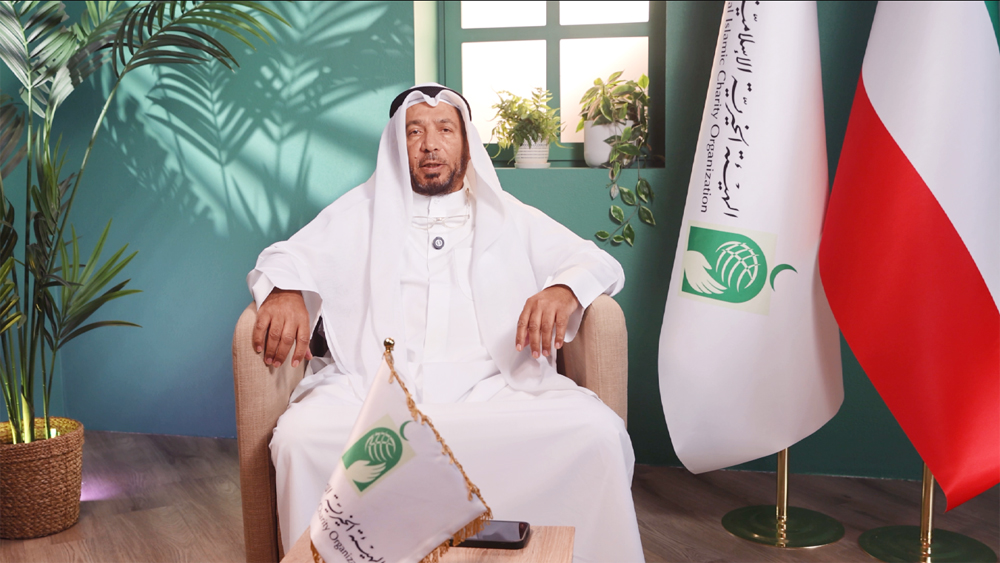
Dr. Abdullah Matouq Al-Matouq, Chairman, International Islamic Charity Organisation (IICO), Kuwait and special advisor for Humanitarian Affairs to UN Secretary General, in his video message, translated into English by Dr. Nakhat Husain Nadwi, held that Dr. Alam’s perception and wisdom made him a man of perfection and commitment to a noble cause. He laid the foundation for a path leading to the enrichment of knowledge for the benefit of society at large.
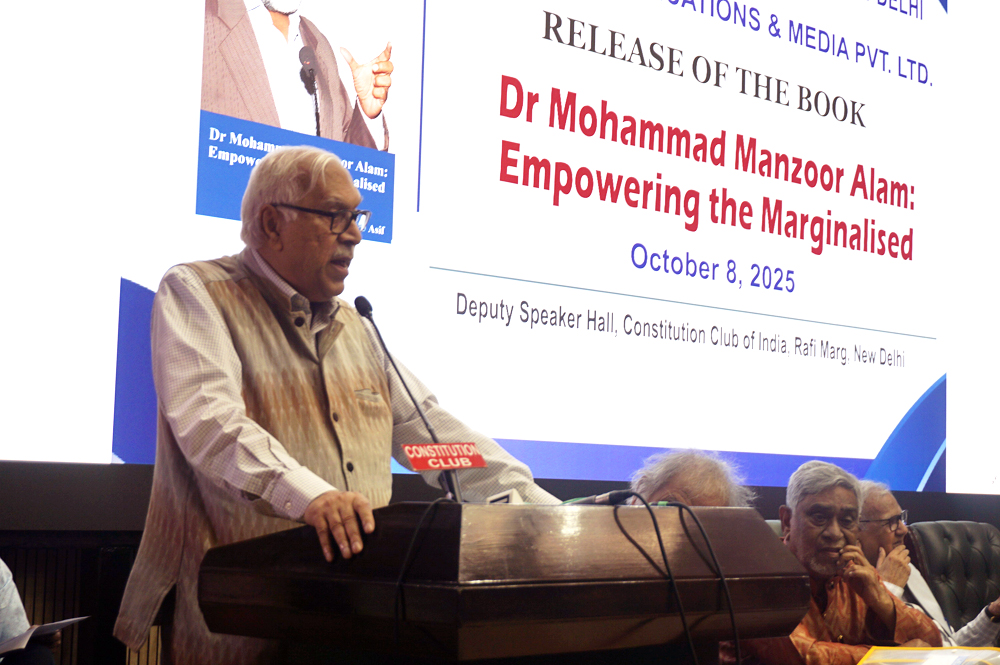
Former Chief Election Commissioner of India, Dr. S.Y. Quraishi, observed that his personal contact with Dr. Alam is since last 2-3 years, but he had been reading him for fairly good time. Though research in India left much to be desired, yet the IOS did its bit to supplement to it and raise the standard. No other institution or organisation did as much work on societal marginalisation as the IOS. Referring to his own book, he said that the RSS chief Mr. Mohan Bhagwat had commented on it. His book attracted both Rightist and Leftist comments. These comments followed his proper research on the subject. He was all praise for Dr. Alam for founding a research-based Institute.
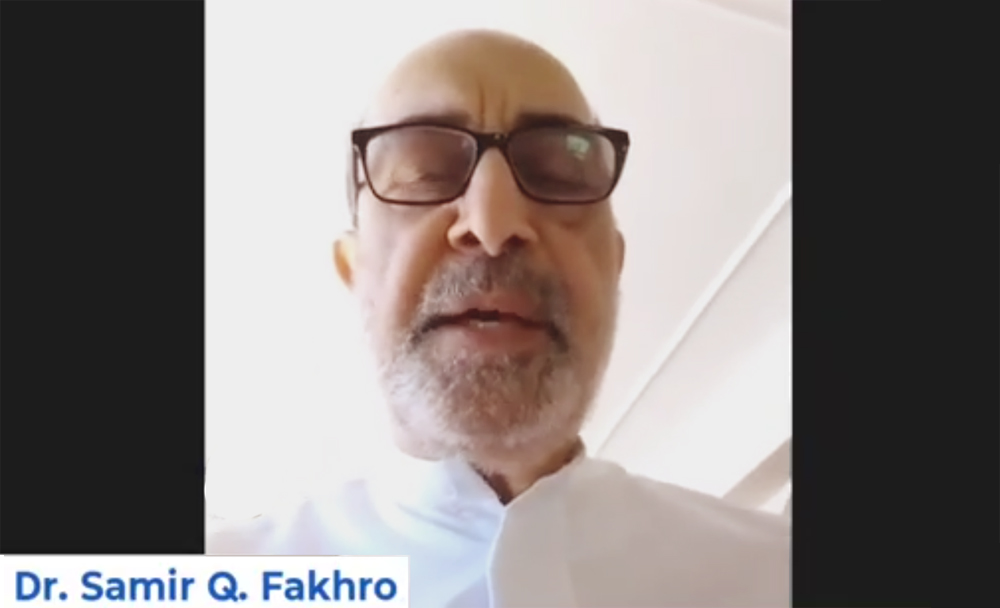
Professor and senior consultant to internationally reputed agencies, Bahrain, Dr. Samir Q. Fakhro, said “May Allah give us strength to do something on knowledge-based power of peace and respect to others. Dr. Alam’s achievements were extra-ordinary and the efforts he made were useful for the younger generation. He also said that his legacy was rich as he had been cherishing the high values of Indian culture and the Constitution”. He opined that lack of inclusivity led to marginalisation of communities.
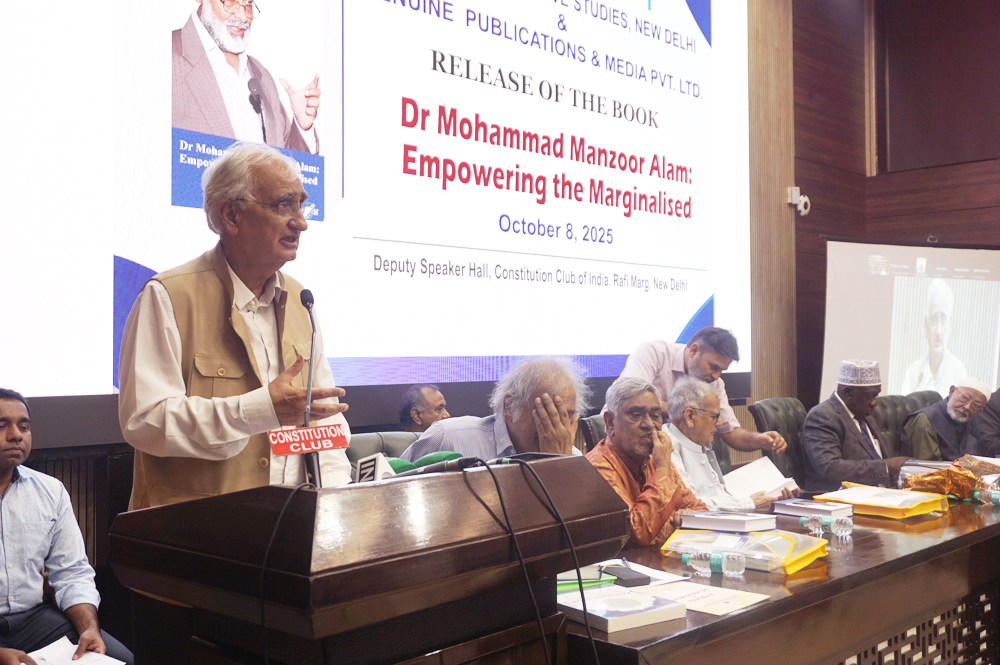
Releasing the biography as Chief Guest, former Union Minister for External Affairs and Minority Affairs, and currently, President of India Islamic Cultural Centre, New Delhi, Mr. Salman Khurshid, observed that Dr. Mohammad Manzoor Alam worked tirelessly for the cause of the community and society. He described Dr. Alam as ‘a beacon of light’, for the new generation. He founded the IOS which set a high standard for intellectual and social excellence in India. He said that IOS was the brainchild of Dr. Alam which grew into an institution that had no parallels. He held that a lot of empowerment of socially and economically backward classes took place in Bihar. But “we must find out why the state lagged behind in empowerment in the past”. Referring to the creamy layer, he said that it gave him a wonderful meaning. Politically, creamy layer was difficult to implement. He concluded saying that Dr. Alam rendered a great service to society.
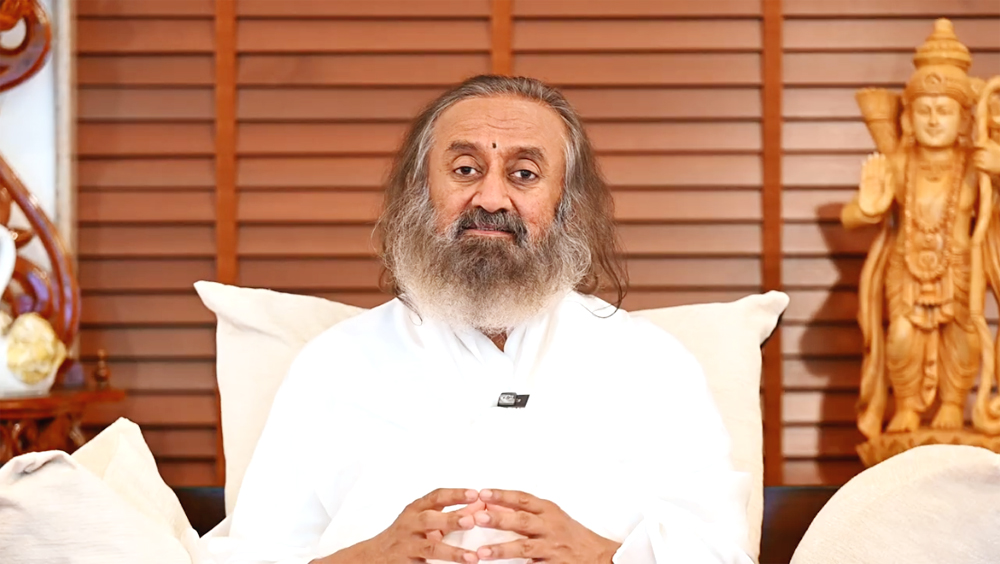
Spiritual leader and the founder of The Art of Living, Bengaluru, Gurudev Sri Sri Ravi Shankar, in a video message, said, “I have known Dr. Alam for some time. He contributed to national integration. We can not afford more division in society. He did a lot for inter-religious dialogues. This has been his lifetime mission. He is a role-model for those who are victims”. While lauding his efforts to bridge religious and social divides, he called him “a guiding light for harmony”.
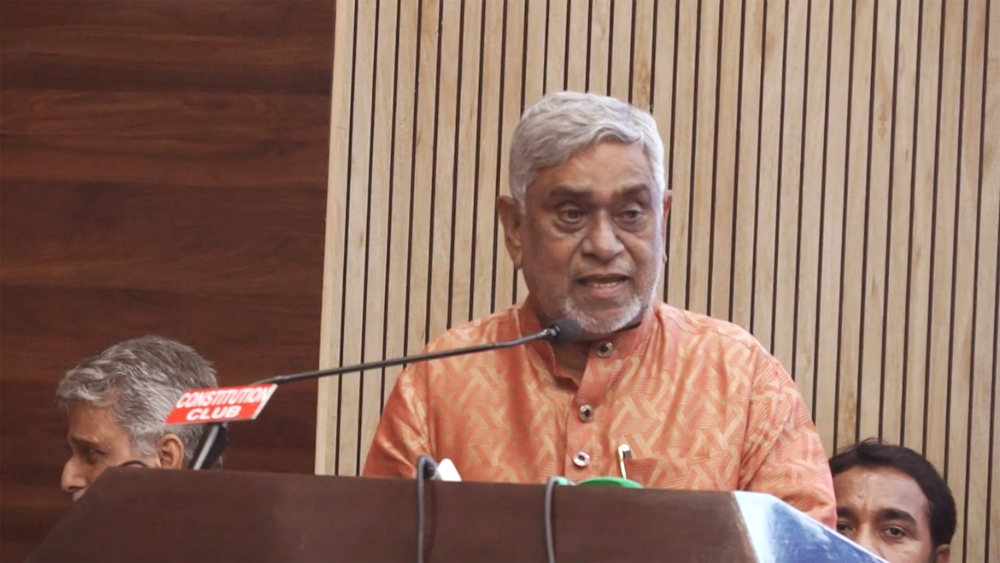
Former President, Maulana Azad University, Jodhpur and Professor Emeritus, Islamic Studies, Jamia Millia Islamia, New Delhi, Prof. Akhtarul Wasey held that Dr. Alam gave the concept of think tank a practical shape. He quietly did his work and set up several other institutions, besides the IOS. The coming generations would take pride in it that they saw Dr. Alam. He bravely and patiently faced adverse circumstances and finally overcame them. “We are united and nobody can divide us. We survived the battle of Karbala and will come unscathed in future as well”, he noted. Praising Dr. Alam, he maintained that his stewardship was marked by the hosting of important seminars. The IOS also had a rich data collection. IOS was established before the appointment of the Sachar Committee. The Committee made use of the data provided by the Institute. He suggested that the biography on Dr. Alam should also be brought out in Hindi. Dr. Alam’s concern was not confined to one community, but extended to other communities also. He called upon the scholars to connect with objectivity, instead of subjectivity.
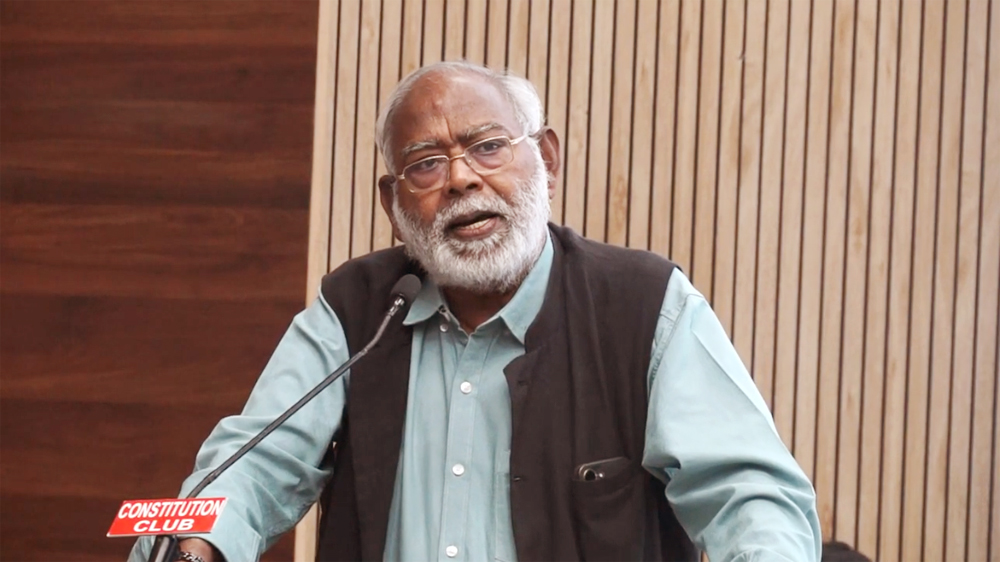
Eminent journalist and human rights activist, Mr. John Dayal, pointed out that the Chairman of the Sachar Committee, Justice Rajinder Sachar, could not incorporate as much data as was provided to him by Dr. M. Manzoor Alam’s Institute. He said that when he met Dr. Alam after the constitution of the Committee, he averred that the issue was not only statistical but also political. While providing the data to the Committee, arguments based on research were made. He opined that the Supreme Court should also have its own data. Caste in India was deep-rooted, but both Muslims and Christians are almost immune to it. Referring to the Presidential Order of 1951, he said that the Order restricted Muslims, Christians and Sikhs to receive the benefit of reservation. Later, Sikhs were removed from the list. The matter was still pending in the Supreme Court, he added.
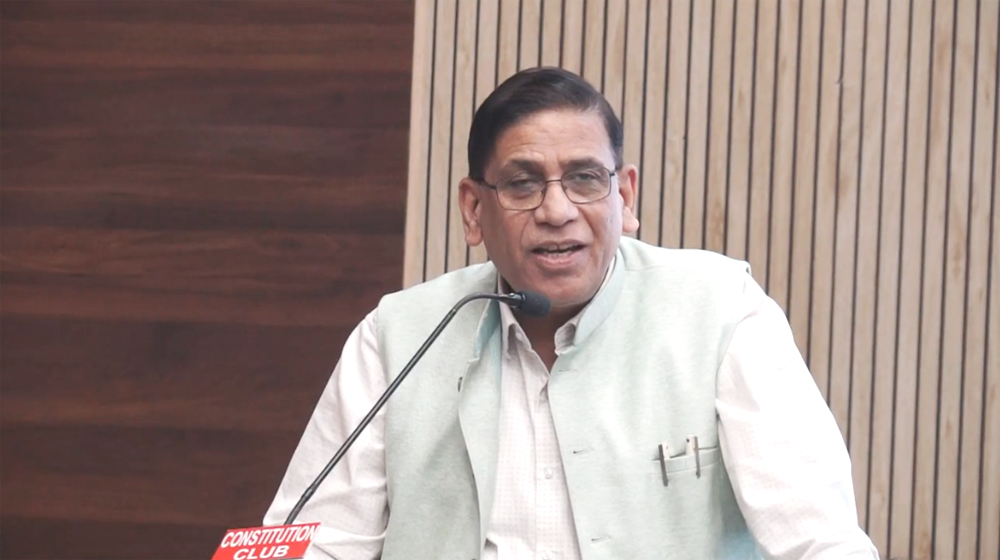
Vice-Chancellor of Chanakya National Law University, Patna, Prof. Faizan Mustafa, described the IOS as a model of knowledge creation which deserved to evolve into a university. He recounted his first encounter with Dr. Mohammad Manzoor Alam when he was a young lecturer in Aligarh Muslim University. He received an invitation from Dr. Alam to speak at a seminar organised by the IOS. He refused to participate, but agreed later. This way he came into contact with him and the association with the IOS became stronger. Prof. Iqbal A. Ansari, who wrote on the minorities was also closely connected with the Institute. Several of his books on Muslims were published by the IOS. He was of the view that the Supreme Court should not decide religious matters. Dr. Alam hosted many seminars, symposia, conferences, etc., and got written and published a number of books, yet the IOS did not vigorously pursue to set up a university. He suggested that a research university should be established to promote research in various subjects of study. He regretted that joint researches could not be undertaken with solidarity. He suggested for aggressive marketing of the IOS publications as well as improving the quality of production. He noted that Muslim society was a loose association which needed to be taken up for study.
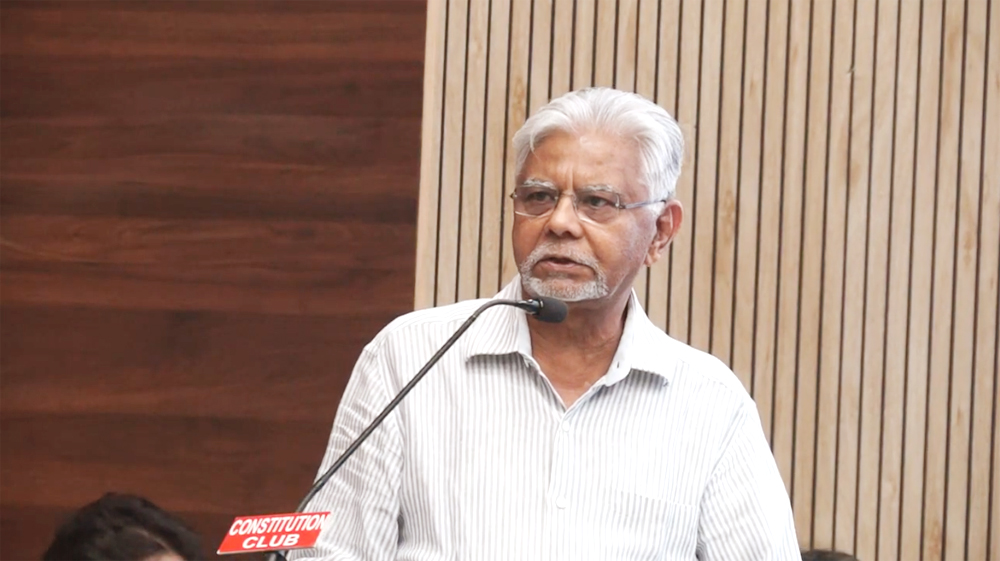
Delhi-based senior journalist, Mr. Q.W. Naqvi, said that the IOS could not receive as much attention as it could have. He was associated with Dr. Alam since the days when the T.V. channel was planned to be launched.
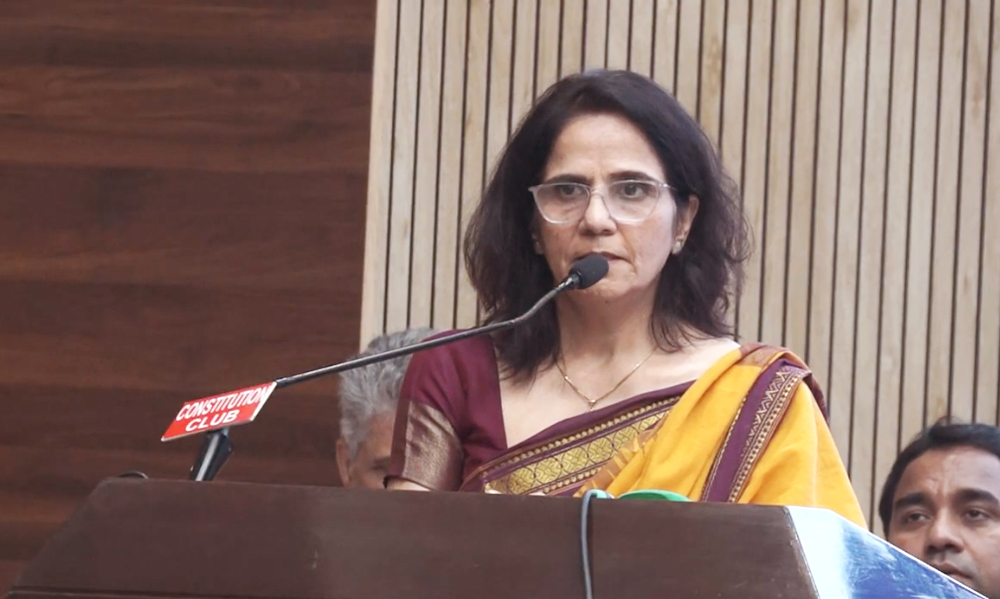
Ms. Binni Yadav, former general secretary, Indian Women’s Press Corps, Delhi observed that she knew Dr. Alam since the past 16-17 years. She said that she met him first at the launch of a book at the IOS.
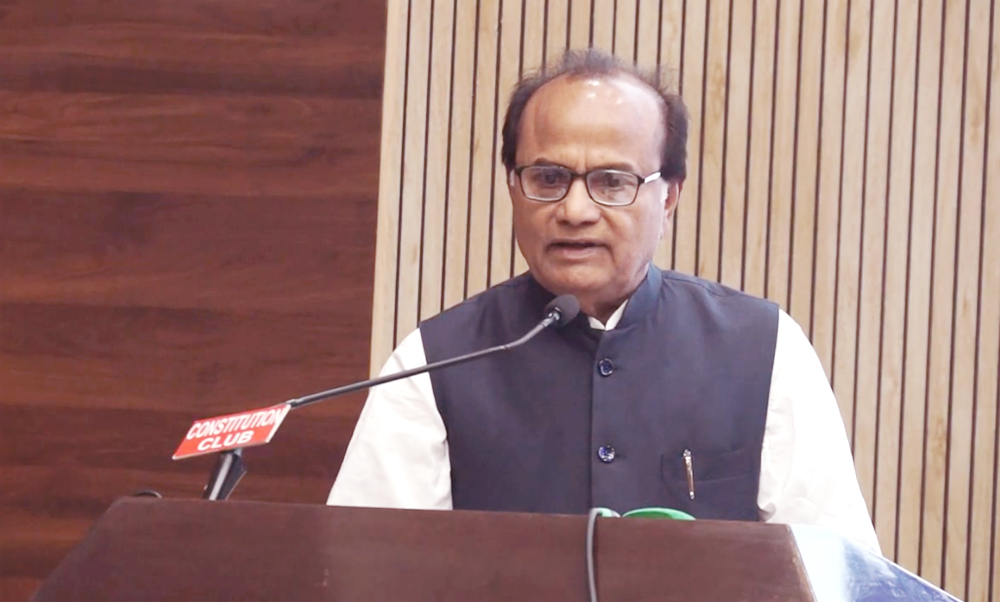
Eminent Urdu journalist and former Rajya Sabha member, Mr. Meem Afzal, held that he witnessed such a spectacular function after a long time. He said Dr. Alam was an institution in himself. He commanded respect in society. In the current age, people were passionate about publicity. But Dr. Alam engaged himself in his work without seeking publicity. He was well-known to Mr. V.P. Singh, Mr. Rajiv Gandhi and other high-profile leaders of India. All of them used to invite Dr. Alam for discussions on vital national and societal issues.
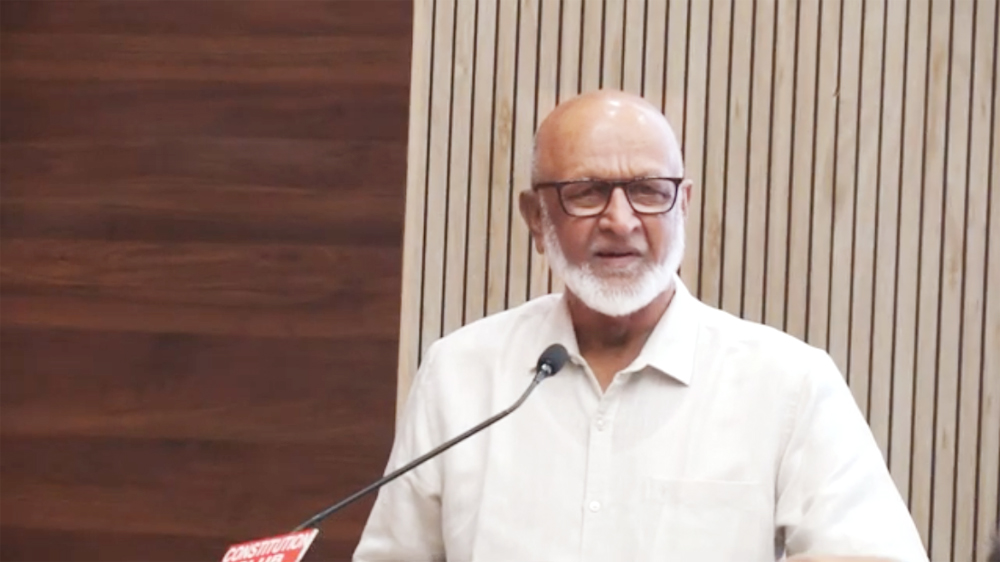
Co-ordinator, IIIT, Sri Lanka, Mr. AJM Zaneer, said that he met Dr. Alam in Sri Lanka in 1992. He spent three days in a hotel there and discussed several issues with him. For five years, he took care of the education of several Sri Lankan students. He secured scholarships for several under-graduate students from the Kingdom of Saudi Arabia. He also engaged him in some publications. He got some books in English translated into Tamil at the instance of Dr. Alam.
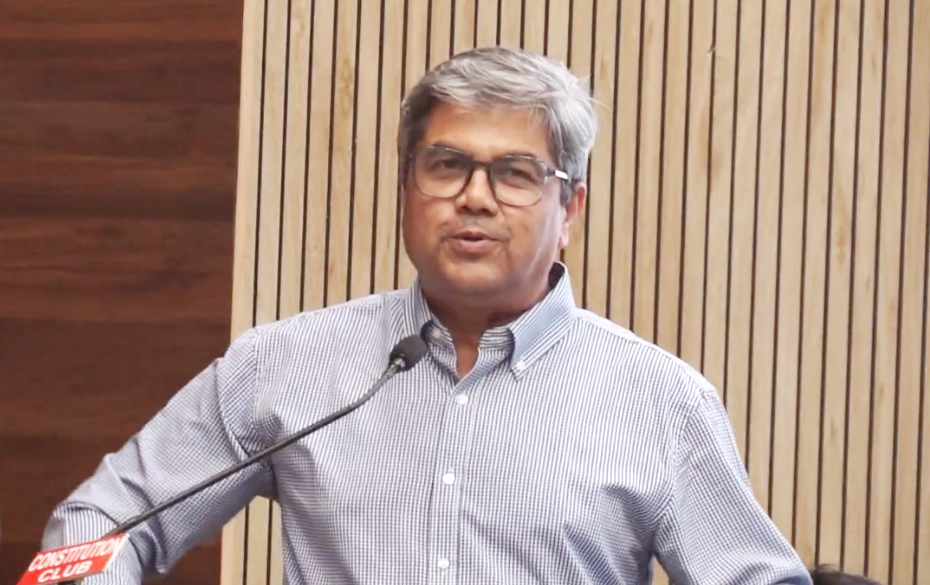
Research Director at CDPP, Hyderabad, Dr. Amir Ullah Khan, said that during the preparation of the Kundu Committee report, he got the opportunity to meet Prof. Amitabh Kundu, Mr. Salman Khurshid and Dr. Mohammad Manzoor Alam. He got inspiration from Dr. Alam and set up a small institution in Hyderabad. He believed that people were not as important as the institutions. He observed that Dr. Alam created a team of 10-12 people which would continue to work even after him. Earlier, he was very concerned about a hostile government assuming office. But later on, he decides to work with the new dispensation.
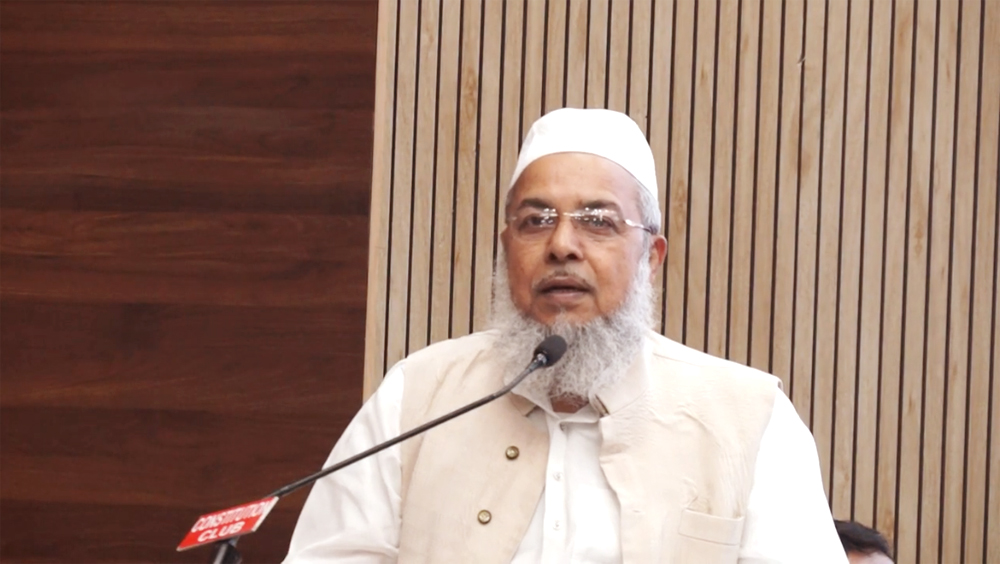
Acting president, All India Milli Council, Maulana Anisur Rahman Qasmi, congratulated Mr. A.U. Asif for writing the biography on Dr. Alam. He said that he had been associated with Dr. Alam since 1986. He influenced the country by his proactive approach. The efforts he put in were visible today. He objectively studied Islam and used his knowledge to take it forward. His future concerns were vindicated, he added.
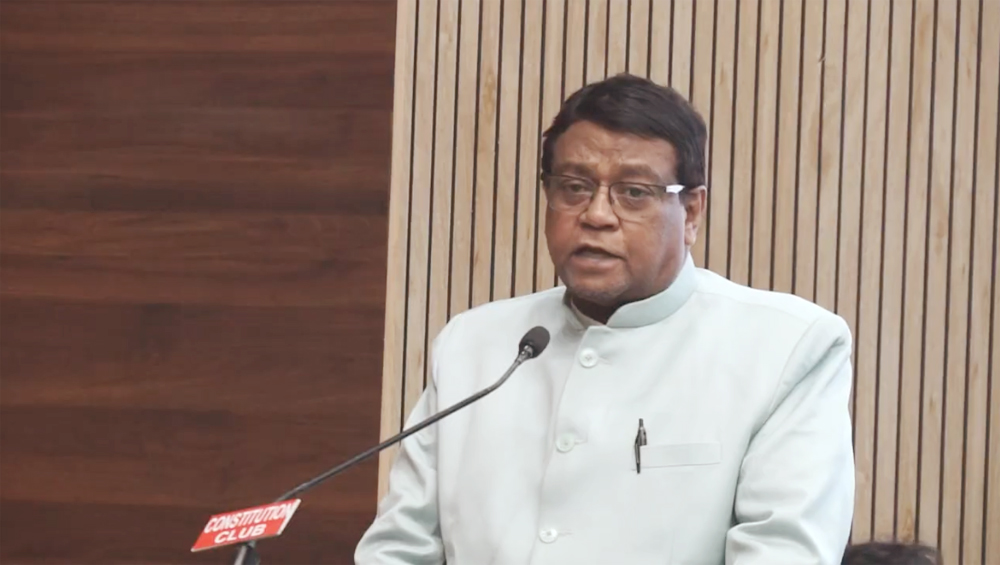
Former Member of Parliament and Editor, Bangla daily Qalam, Kolkata, Ahmed Hassan Imran, observed that Dr. Alam’s contribution to uplift the deprived sections and the minorities was immense. His work was great and deserved to be emulated. He said that though the Muslims of West Bengal lagged behind in the race of development, they ardently believed in the Constitution. He expressed his desire to coordinate with the IOS.
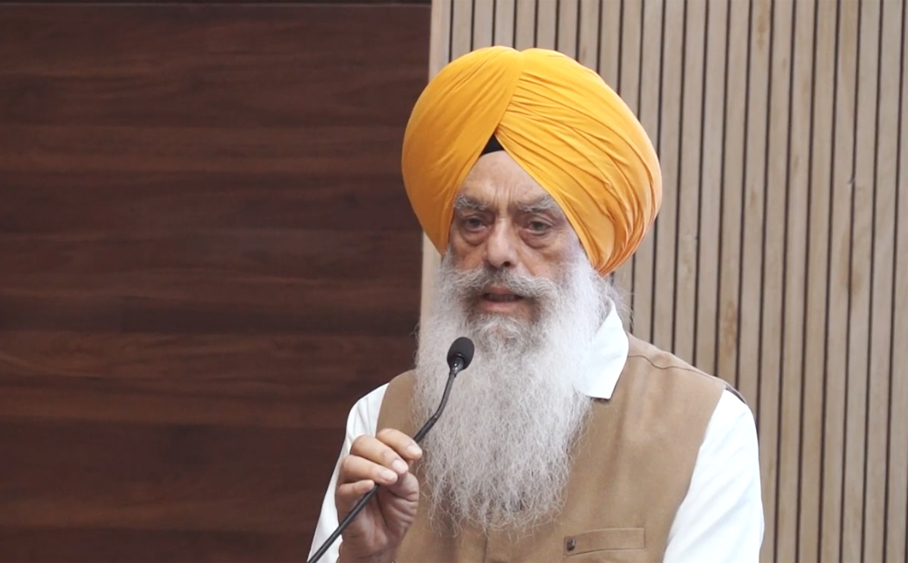
Mr. Gurdeep Singh, managing editor of Aaj-di-Awaz, Punjab, said that he was associated with Dr. Alam since last 25 years.
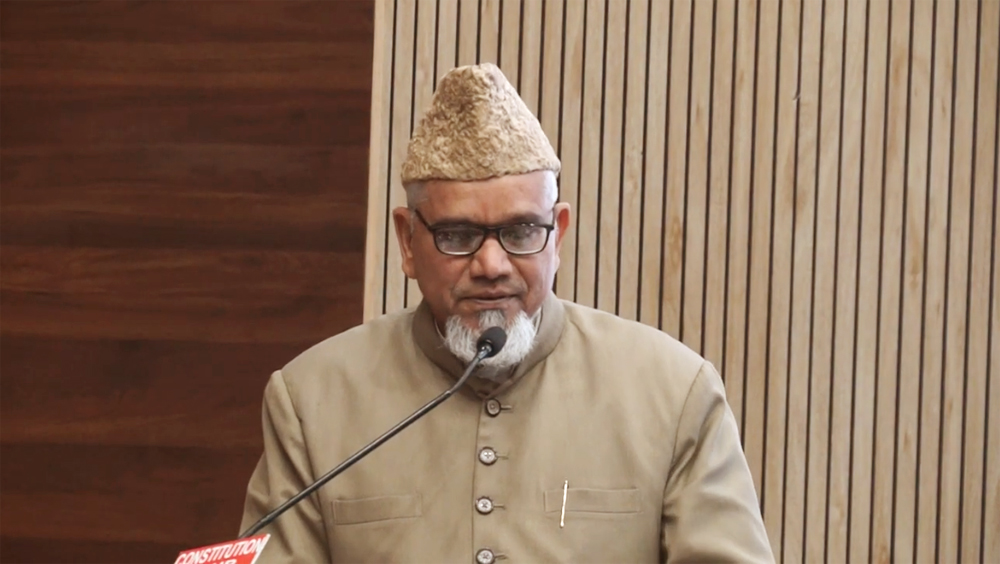
Vice-President, Jamaat-e-Islami Hind, Prof. Saleem Engineer, praised Dr. Alam for his stress on objectivity in the field of study and research. He said that he provided a platform to scholars to converge and share their experiences for the good of the community and society.
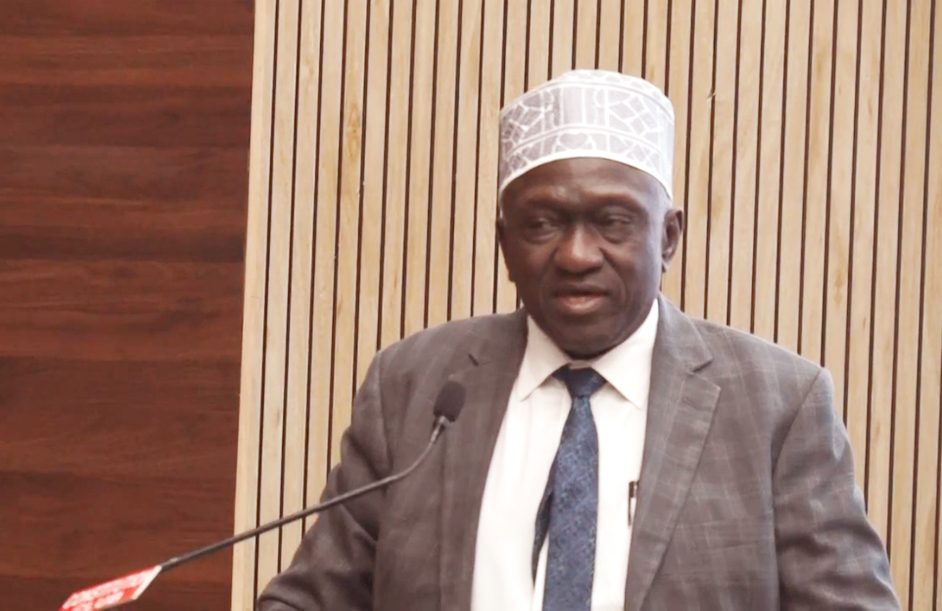
Secretary General, International Institute of Islamic Thought (IIIT), USA, Prof. Omar Hasan Kasule, described Dr. Mohammad Manzoor Alam as a man who turned knowledge into a tool for transformation. He gave up comfort in Saudi Arabia to return to his country, India, to serve the people. He linked the personality of Dr. Alam with a Sahabi (companion) of the Prophet (PBUH), Mas’ab Bin Omair (RA) who belonged to a well-to-do family. He migrated from Mecca to Madina on the instructions of the Prophet (PBUH) to educate and train the people of Madina. He spread the light of knowledge among the citizens of Madina. Dr. Alam also did the same thing. He established an institution of knowledge and research in India to empower the marginalised sections. This institution also spread knowledge to other parts of the world. Dr. Alam was a votary of country’s diversity of religion, language and faith. He had unwavering faith in the Constitution and constitutionalism, Prof. Kasule concluded.
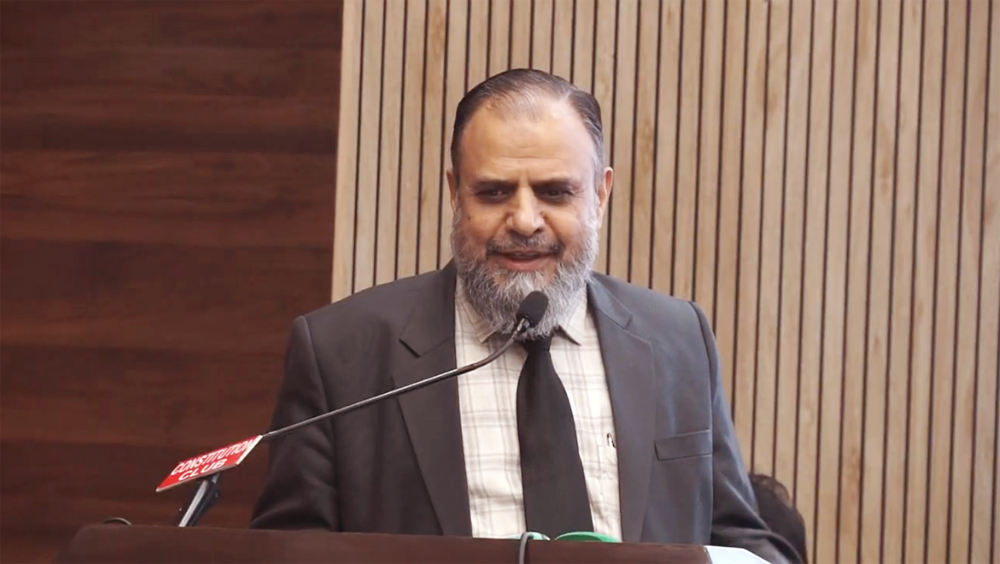
The Chairman of the IOS, Prof. M. Afzal Wani delivered the presidential address. He initially, with reference to an Urdu couplet, explained that the spirit behind the efforts of Dr. Mohammad Manzoor Alam was his inner urge to communicate with others and share with them his understanding and enlightenment to generate in them a longing to work for the betterment of the humanity and benefit people to the best of his energies and exertions. Prof Wani explained about the background of the IOS, established by Dr. Mohammad Manzoor Alam as an institution much need because of a pressing need for objective studies for knowledge creation and problem solving against an unwanted trend of scholars leaning towards the ideologies of the power yielders of the day or available funding agencies. Dr. Alam’s quest to attain objectivity in academics and research proved successful in the form of hundreds of researches conducted in the institute through project works and research-oriented conferences, seminars and other academic activities of national and international levels. Prof. Wani, with IOS research experience, asserted that studies in science and spirituality can go hand in hand. As I was in search of this approach of objectivity since my college days, my meeting Dr. Mohammad Manzoor Alam was in my understanding a Godly connect to go ahead in quest for the real. Prof. Wani said that the concept of objectivity can be best understood with reference to the typical prayers of the Prophet Muhammad (PBUH): “Allah show me the things as they are"! Prof. Wani described IOS a movement to be placed in context with great knowledge creators of human history from Ibn Khaldun to latest scholars of Islam. He cogently avowed that Dr. Alam is not merely a community leader, activist, economist, friend or mentor, but an academic worthy of being counted as a scholar in the intellectual tradition of the world. Prof. Wani, appreciating the public-spirited nature of Dr. Mohammad Manzoor Alam said that the institutions like Islamic Fiqh Academy and All India Milli Council were also born out of the vision of Dr. Alam. He described him as a multi-faced personality with determination and rare capability of “doing what he says”. Referring to the common belief of the people about establishing an IOS University, he said that IOS was more than a university with about five hundred publication and one thousand and three hundred academic programmes which benefited a large number of university teachers, researchers, students, public servants, social scientists/activists, government agencies and international bodies. Prof. Wani clarified that effort for establishing an IOS University is half way. He however lamented that “We, Indians, do not focus much on research in comparison to non-productive rituals and solemnisations”. “Dr. Alam always thinks not only of one community, but all the communities, especially the marginalised sections of the Indian population, with close cooperation with leaders of all the faiths in the country”, he concluded.
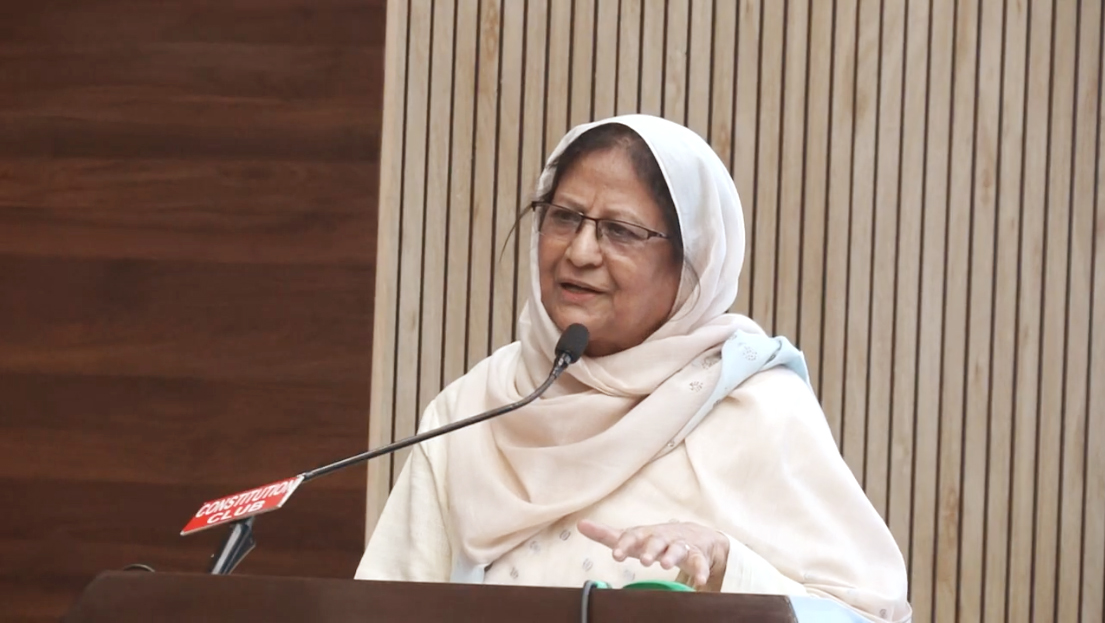
At the end of the function, the vice-chairperson of the IOS, Prof. Haseena Hashia presented a vote of thanks to the attendees.

A view of audience
Go Back